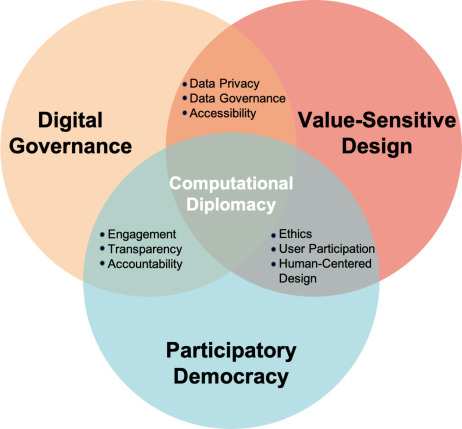Introduction
Things We Hide from the Lighta world that often celebrates transparency and authenticity, there are numerous aspects of our lives that we choose to keep hidden. These secrets, whether personal, societal, or even universal, shape our identities and influence our interactions. This article delves into the myriad of things we hide from the light, exploring the motivations behind these hidden aspects and their implications on our lives. We will examine the psychological, social, and cultural dimensions of secrecy and vulnerability, ultimately revealing the transformative power of embracing our truths.
The Nature of Secrets
Understanding Secrets
Secrets are an intrinsic part of the human experience. They range from trivial to profound, encompassing everything from forgotten passwords to deep-seated fears and traumas. The psychology of secrets reveals much about our nature; they can provide a sense of control, safety, or even shame.
The Duality of Secrets
On one hand, secrets can protect us, shielding us from judgment or unwanted attention. On the other hand, they can isolate us, creating barriers to authentic connection. This duality illustrates the complex relationship we have with the things we choose to hide.
Why We Keep Secrets
Several factors influence our decision to hide things from others:
- Fear of Judgment: Many secrets stem from a fear of how others might perceive us. We worry that revealing certain truths could lead to rejection or criticism.
- Cultural Norms: Societal expectations can dictate what is considered acceptable to share. Many cultures promote an ideal of perfection, leading individuals to hide imperfections or struggles.
- Personal Protection: Sometimes, we hide things to protect ourselves or others. This can be seen in cases of trauma where revealing the truth might cause further harm.
- Control: Keeping secrets can create a sense of control in situations where we feel powerless. By withholding information, we can dictate the narrative of our lives.
- Guilt and Shame: Experiences that evoke feelings of guilt or shame are often hidden. The fear of being judged or misunderstood can prevent individuals from sharing their experiences.
- Survival Mechanism: In certain situations, particularly in abusive environments, keeping secrets can be a means of survival. Individuals may hide their true feelings or experiences to avoid further harm.
The Psychological Impact of Secrets
Cognitive Dissonance
The act of keeping secrets can lead to cognitive dissonance, a psychological phenomenon where there is a conflict between one’s beliefs and actions. When individuals hide parts of their identity, they may experience stress and anxiety as they navigate the tension between their authentic selves and their hidden truths.
Emotional Burden
The emotional burden of maintaining secrets can be significant. Research indicates that carrying secrets can lead to increased stress levels, anxiety, and even physical health issues. This emotional toll often exacerbates feelings of loneliness and disconnection.
The Relief of Disclosure
Conversely, the act of revealing secrets can be liberating. Studies show that sharing hidden truths can lead to a reduction in stress and an increase in well-being. The relief that comes from confession, whether to a friend or a therapist, often leads to a sense of empowerment and healing.
Personal Secrets
Hidden Emotions
One of the most common things people hide are their emotions. We often mask feelings of sadness, anger, or anxiety behind a façade of happiness. This emotional suppression can have profound effects on mental health.
The Burden of Unexpressed Emotions
Unexpressed emotions can lead to stress, anxiety, and even physical health issues. The act of bottling up feelings may provide temporary relief, but in the long run, it can create an emotional burden that weighs heavily on individuals.
Case Study: The Cost of Suppression
Consider the case of Anna, a successful professional who presents a cheerful demeanor to her colleagues. Behind closed doors, she struggles with anxiety and feelings of inadequacy. Despite her achievements, Anna feels compelled to hide her struggles, fearing that vulnerability would undermine her credibility. Over time, this emotional suppression leads to burnout, illustrating the high cost of hiding one’s true feelings.
The Role of Emotional Intelligence
Emotional intelligence—the ability to understand and manage one’s emotions—is crucial in navigating the complexities of hidden feelings. Individuals with high emotional intelligence are often better equipped to recognize their emotions and express them in healthy ways, reducing the need to hide behind facades.
Past Trauma
Many individuals carry the weight of past traumas that they choose not to disclose. These experiences shape who they are but often remain buried deep within.
The Impact of Trauma
Trauma can manifest in various ways, including anxiety disorders, depression, and difficulty in relationships. The act of sharing one’s trauma can be healing, yet the fear of vulnerability often keeps these stories in the shadows.
The Healing Power of Disclosure
Therapists often encourage individuals to share their traumatic experiences as part of the healing process. By bringing these hidden aspects to light, individuals can begin to process their feelings and regain a sense of agency. This process can be transformative, leading to greater self-acceptance and improved relationships.
Real-Life Example: Overcoming Childhood Trauma
Consider the story of Jake, who experienced emotional abuse during his childhood. For years, he struggled with feelings of worthlessness, believing he was unlovable. It wasn’t until he began therapy that he started to share his experiences. As he articulated his pain, he began to understand that his worth was not defined by his past. This journey of disclosure led to profound healing, illustrating the power of sharing hidden traumas.
Insecurities and Flaws
Insecurities are another common secret we hide from others. Whether it’s physical appearance, intelligence, or social skills, many people feel compelled to conceal their perceived flaws.
The Fear of Imperfection
The societal pressure to present an image of perfection can be overwhelming. Many individuals hide their insecurities to conform to societal ideals, leading to feelings of inadequacy.
The Impact of Social Media
Social media exacerbates feelings of insecurity as users curate their lives to portray an ideal image. The constant comparison to others can lead to a distorted self-image, reinforcing the desire to hide perceived flaws.
The Freedom of Acceptance
Embracing imperfections can be liberating. Sharing our insecurities with trusted individuals can foster connection and understanding, ultimately leading to a more authentic existence.
Empowering Narratives: Celebrating Flaws
Consider the growing movement of body positivity, where individuals openly share their insecurities about their appearance. This movement challenges societal standards of beauty, encouraging people to embrace their unique features. By sharing their stories, individuals empower others to do the same, fostering a sense of community and acceptance.
Societal Secrets
The Facade of Perfection
In today’s digital age, the pressure to portray a perfect life online has never been greater. Social media platforms often showcase curated images and experiences, leading to a culture of comparison and concealment.
The Reality Behind the Highlight Reel
The disparity between online personas and real life can create feelings of inadequacy. Many individuals hide their struggles and imperfections, leading to a collective silence about common human experiences.
The Influence of Influencers
Social media influencers often create an unattainable standard, showcasing flawless lives that can lead followers to feel inadequate. The psychological impact of this comparison can be detrimental, perpetuating feelings of insecurity and loneliness.
Mental Health Stigmas
Despite growing awareness of mental health issues, many still feel compelled to hide their struggles due to societal stigma.
Breaking the Silence
Creating open dialogues about mental health can help diminish the stigma and encourage individuals to share their experiences, ultimately fostering a supportive community.
Initiatives for Change
Organizations and movements advocating for mental health awareness play a crucial role in normalizing discussions around mental health. Campaigns that encourage individuals to share their stories can create a culture of empathy and understanding.
Real-World Examples: Movements for Change
The “Bell Let’s Talk” initiative in Canada has effectively raised awareness about mental health issues, encouraging individuals to speak openly about their struggles. By using social media to promote conversations, the campaign has fostered a greater understanding of mental health challenges and the importance of seeking help.
Universal Secrets
The Fear of Death
Death is a universal truth, yet it is often shrouded in secrecy and avoidance. People tend to hide their fears and thoughts about mortality, leading to an unspoken tension around the subject.
Embracing Mortality
Acknowledging the inevitability of death can lead to a more fulfilling life. Discussions about death can enhance our appreciation for life and motivate us to live more authentically.
Cultivating Acceptance
Philosophers and psychologists often argue that confronting our fears of death can lead to greater personal growth. Embracing mortality encourages individuals to prioritize what truly matters, fostering a sense of purpose.
The Role of End-of-Life Conversations
Engaging in conversations about death can be uncomfortable, but it is essential for personal and communal healing. Many people find that discussing their fears and wishes regarding death leads to a deeper understanding of their values and priorities.
The Secrets of Existence
Philosophical questions about the meaning of life and our place in the universe are often left unexplored. Many individuals wrestle with existential queries but may hesitate to share their thoughts for fear of sounding foolish or lost.
The Power of Vulnerability
Sharing these deep-seated questions can create connections with others, fostering an environment where individuals can explore the complexities of existence together.
Group Discussions and Existential Retreats
Facilitated discussions, such as those found in existential retreats or workshops, can provide a safe space for individuals to explore their beliefs and fears. These environments encourage openness and can lead to profound insights and personal growth.
The Consequences of Hiding
Emotional Isolation
Hiding aspects of ourselves can lead to emotional isolation. When we conceal our true selves, we create barriers between ourselves and others, preventing genuine connections.
The Cycle of Isolation
Emotional isolation can lead to a cycle of loneliness. As individuals withdraw from authentic interactions, they may experience increased feelings of sadness and despair, further perpetuating the desire to hide.
The Impact on Mental Health
Research indicates that loneliness can have significant effects on mental health, leading to increased risks of depression and anxiety. Breaking this cycle requires intentional efforts to engage in authentic relationships.
The Pressure of Maintaining Secrets
The effort required to maintain secrets can be exhausting. This emotional labor can drain mental energy, leading to stress and anxiety.
The Weight of Secrets
Carrying secrets can have physical health consequences, including increased blood pressure and a weakened immune system. The burden of secrecy can manifest not just emotionally, but physically as well.
The Impact on Relationships
Hiding aspects of ourselves can damage relationships. When individuals are not authentic, their connections can lack depth and understanding.
The Importance of Trust
Building trust requires vulnerability. When we share our true selves, we invite others to do the same, creating a foundation for deeper connections.
Case Studies of Relationships Affected by Secrets
The Story of Sarah and Mark
Sarah and Mark, a couple married for five years, faced challenges stemming from unaddressed secrets. Sarah had struggled with an eating disorder for years but felt ashamed to disclose it to Mark. As a result, their relationship became strained, characterized by misunderstandings and emotional distance. When Sarah finally chose to share her struggles, it opened the door for deeper conversations and healing. This experience illustrates how revealing secrets can strengthen relationships.
The Path to Authenticity
Embracing Vulnerability
To break free from the burdens of secrecy, individuals must learn to embrace vulnerability. Sharing our true selves, including our flaws and struggles, can be incredibly liberating.
The Courage to Be Seen
Brené Brown, a renowned researcher on vulnerability, emphasizes the importance of courage in embracing our true selves. By allowing ourselves to be seen, we create opportunities for authentic connections.
The Role of Vulnerability in Personal Growth
Vulnerability is not just about sharing pain; it can also be a catalyst for personal growth. When individuals confront their fears and insecurities, they often discover strengths they never knew they possessed.
Creating Safe Spaces
Encouraging open dialogues about hidden aspects of life is crucial. Creating safe spaces where individuals can share without fear of judgment can help reduce the stigma surrounding secrets.
Community Initiatives
Community organizations and support groups can provide environments where individuals feel comfortable sharing their experiences. These initiatives can foster understanding and empathy, promoting healing.
The Role of Therapy
Therapeutic settings offer a safe space for individuals to explore their secrets. Therapists are trained to help clients navigate their feelings, providing support as they confront their hidden truths.
Transformative Healing
Many individuals find that the act of sharing their secrets in therapy leads to significant personal growth. This transformative process can enhance self-acceptance and improve overall mental health.
Personal Narratives and Their Power
The Importance of Storytelling
Sharing personal stories of vulnerability can inspire others to embrace their own truths. Whether it’s overcoming a mental health struggle, navigating the complexities of relationships, or facing societal expectations, these narratives can foster connection and understanding.
Real-Life Examples: Inspiring Stories
Consider the story of Maria, who battled depression for years in silence. After attending a support group, she decided to share her journey publicly through a blog. Her candidness not only helped her heal but also created a community of individuals who felt empowered to share their struggles. Maria’s story illustrates the profound impact of storytelling and the connections it can create.
Collective Healing
When individuals come together to share their stories, it creates a collective healing experience. This sense of community can break down barriers and encourage others to open up about their own experiences.
The Ripple Effect
The ripple effect of sharing personal truths can be profound. One person’s courage to be vulnerable can inspire others to do the same, creating a cycle of authenticity and connection.
The Role of Art and Creativity
Art can serve as a powerful medium for exploring and expressing hidden truths. Creative outlets, such as writing, painting, or music, can provide individuals with a means of processing their emotions and experiences.
Case Study: Art Therapy
Art therapy has gained recognition as an effective therapeutic approach for individuals grappling with trauma and mental health issues. By creating art, individuals can express emotions that may be difficult to articulate verbally. This process can facilitate healing and provide a sense of empowerment.
The Transformative Power of Sharing
Building Empathy
Sharing our secrets and vulnerabilities can build empathy among individuals. When we hear others’ stories, we begin to understand their struggles and triumphs, fostering a sense of connection.
The Importance of Listening
Active listening is a crucial component of empathetic interactions. When individuals feel heard and understood, they are more likely to open up about their own experiences.
Cultivating Authentic Relationships
Authentic relationships are built on trust and vulnerability. By sharing our true selves, we create opportunities for deeper connections that transcend superficial interactions.
The Role of Mutual Support
In authentic relationships, individuals support each other through their struggles. This mutual support can be incredibly healing, creating a sense of belonging.
Conclusion
In our pursuit of authenticity, it is essential to acknowledge the things we hide from the light. By understanding the nature of secrets—personal, societal, and universal—we can begin to dismantle the barriers that keep us from living fully and authentically.
The Journey Towards Light
As we navigate our individual journeys, it’s crucial to remember that we are not alone. Many share similar struggles and fears, and by bringing our hidden truths into the light, we not only liberate ourselves but also pave the way for others to do the same.
Embracing Our Collective Humanity
Ultimately, the things we hide from the light are a part of our shared human experience. By embracing our collective humanity, we can create a world where vulnerability is celebrated and authenticity is valued.
Call to Action
Let us commit to a journey of authenticity, shedding the weight of our secrets and embracing the light within ourselves. In doing so, we can create a more compassionate, understanding world where everyone feels free to share their truth.for more details please visit the website networksights.com














Leave a Reply